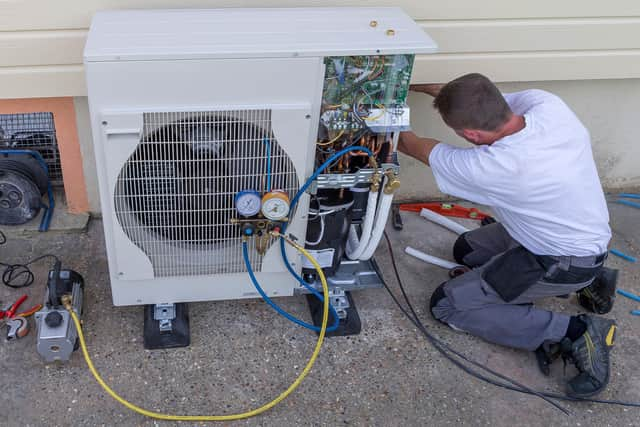It’s time to rethink this flawed heat pumps policy - David Alexander
But this is the fate of the current heat pump policy of the Scottish Government which has, again, been criticised from a number of sources questioning the practicality of its implementation, the potential for alternative solutions, and the unrealistic timescale for imposition.
Both the GMB union and the head of the Scottish GasNetworks (SGN) have called a for a rethink on the current heat pump policy, with the union putting forward a motion at the Scottish Labour party conference last weekend calling for a refocus of the plan toward hydrogen for heating.
Advertisement
Hide AdAdvertisement
Hide AdThe union has also stated it believes the Scottish Government is bullying homeowners into installing unsuitable heating systems as they expressed “deep concern” over the Scottish Government’s heat in buildings plans, claiming the strategy “proposes banning gas boilers and forcing onto households untested systems such as heat pumps which come with higher installation and running costs”.


Meanwhile the head of SGN, Mark Wild, said that a single solution is not the answer. He explained: “First of all, setting aspirational targets is a good thing, it allows people to really plan and the key thing for me is how you bring in investment for these huge projects. The actual solution for 2045 is that it will be a mixed economy, it will take a variety of tools to get to decarbonisation.”
He continued: “It will not just be heat pumps, it will be a variety of applications, heat pumps will be a part of this, but carefully just take customers with us, and then we will get there. But if we just push too hard with only one solution, it just doesn't work.”
Recently, Audit Scotland warned that cleaner heating systems need to be installed at a much faster rate, recognising that a broader range of solutions needs to be considered immediately. Audit Scotland reported that only about 5,000 heat pumps were installed in 2022, a long way short of the current target of about 25,000 a year. The target is meant to rise rapidly to 200,000 annually later in the decade. Audit Scotland said ministers needed to produce a “clear delivery plan” to ensure the targets are met.
We, therefore, have a plan to introduce a heating system which won’t work in a large number of properties in Scotland; that does not have the trained workforce to install it; that is reliant on homeowners to fund these expensive heating systems; and is so far behind its targets that everyone knows it will fall far short of its own ambitions.


Surely at this point it must be time to take stock, examine what works, and liaise and discuss new proposals which have a greater chance of success, will be more cost-effective, and can be practically implemented across the diverse housing stock in Scotland. This one-size-fits-all proposal will simply not work and the earlier this is recognised the quicker a workable solution can be developed. Acting immediately to change direction on the introduction of cleaner energy is the only way to ensure that climate change targets will be met in the future.
David Alexander is CEO of DJ Alexander Scotland Ltd
Comments
Want to join the conversation? Please or to comment on this article.